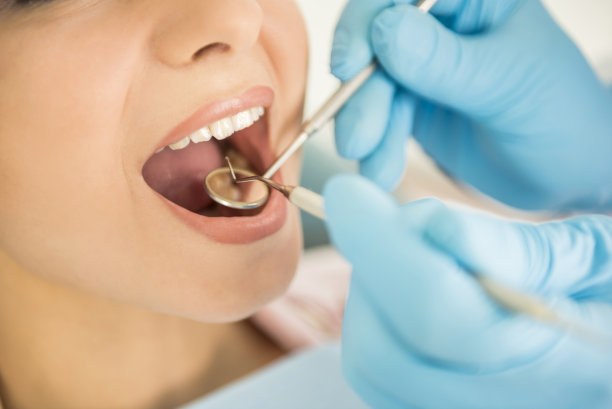Summary: Extracting a tooth may seem daunting, but it plays a vital role in promoting long-term oral health and overall wellbeing. This article explores the multifaceted importance of tooth extraction, illustrating how it prevents further dental complications, enhances oral hygiene, alleviates discomfort, and contributes to overall health. By understanding these critical aspects, individuals can make informed decisions about their oral health that extend beyond simple aesthetics or immediate relief. In recognizing the necessity of tooth extraction, patients can pave the way for healthier smiles and improved life quality.
1. Preventing Further Dental Complications

One of the primary reasons for tooth extraction is to prevent future dental problems. When a tooth becomes severely decayed or infected, it can lead to serious complications such as abscesses or even spread the infection to surrounding teeth and gums. By removing the affected tooth, patients can mitigate the risk of these issues, ensuring their overall dental health remains intact.
Moreover, retaining a problematic tooth can contribute to misalignment of the remaining teeth. If a tooth is decayed or damaged, it may compromise the structural integrity of neighboring teeth, leading to shifting and misalignment. Extracting the troubled tooth can prevent this domino effect, upholding the stability of the entire dental structure and preventing extensive orthodontic work in the future.
In addition, tooth extraction can be a preemptive measure before more severe procedures become necessary. If a tooth is at risk of needing root canals or other invasive treatments, extraction may be a more straightforward solution. By addressing the problem before it escalates, patients can save time, money, and discomfort.
2. Enhancing Oral Hygiene Practices
Maintaining optimal oral hygiene is crucial for overall health, and tooth extraction can greatly simplify this process. When problematic teeth are removed, patients often find it easier to brush and floss without hindrance. Remaining teeth can be better maintained without having to navigate around decaying or overcrowded areas, reducing the risk of plaque accumulation and subsequent oral diseases.
Additionally, fewer teeth can mean less time spent on oral hygiene routines. This simplification can encourage individuals to maintain a more regular and thorough oral care regimen, ultimately leading to improved dental health. With fewer obstacles to cleaning, patients might find motivation to keep their mouths in better condition.
An improved oral hygiene routine not only benefits the mouth but also enhances overall well-being. Healthy teeth and gums are linked to lower risks of systemic health issues, including heart disease and diabetes. Therefore, promoting better oral hygiene post-extraction can lead to a healthier life in more ways than one.
3. Alleviating Discomfort and Pain
Pain and discomfort are common symptoms associated with dental issues. When a tooth becomes severely damaged, the associated pain can negatively affect a person’s quality of life. Extraction can provide immediate relief from this discomfort, allowing patients to return to their normal lives without the burden of ongoing dental pain.
Furthermore, chronic dental issues can lead to increased stress and anxiety. Dental pain can become a constant distraction, affecting sleep and daily activities. The decision to extract a problematic tooth can thus alleviate not only the physical pain but also the emotional strain that comes with ongoing dental troubles.
Post-extraction, recovery can offer a refreshing start for patients who once endured daily pain. With effective pain management and healing, individuals often find renewed comfort, which can dramatically improve their overall outlook on life. The elimination of discomfort is a key factor in promoting overall wellbeing, often resulting in renewed energy and a positive mindset.
4. Contributing to Overall Health and Wellbeing
The relationship between oral health and overall health is well-documented. Compromised oral health can lead to broader health issues, making tooth extraction a critical aspect of preventative healthcare. By removing unhealthy teeth, patients may decrease their risk for systemic conditions, contributing positively to their long-term health.
Moreover, maintaining a healthy mouth can lead to better nutritional choices. Teeth play a crucial role in effective chewing and digestion. If a tooth is painful or compromised, individuals might alter their diets to avoid discomfort, often resorting to unhealthy soft foods. Extracting a problematic tooth opens up dietary possibilities, enabling patients to consume a varied, nutritious diet that supports overall wellbeing.
Lastly, healthy teeth and gums often enhance self-esteem and confidence. Individuals are more likely to engage socially when they are proud of their smiles. The act of extracting troubled teeth can lead to a more confident and healthier individual, thus improving mental health and overall life satisfaction. Understanding the full circle of benefits derived from tooth extraction reinforces its importance in health discussions.
Summary: In conclusion, the decision to extract a tooth can have far-reaching effects on an individuals long-term oral health and overall well-being. Extracting problematic teeth not only prevents future complications but also enhances oral hygiene, alleviates discomfort, and contributes to holistic health. These factors interconnect to support a healthier lifestyle, making tooth extraction an essential aspect of dental care.
By understanding the multifaceted importance of tooth extraction, individuals can make informed choices about their oral health that lead to brighter, healthier futures. This article is compiled by Vickong Dental and the content is for reference only.
Vickong Dental
Vickong Dental is a large medical group established in Hong Kong in 2008 by professors from well-known medical universities in Guangdong and Hong Kong, as well as medical doctors from key national '985' universities (including Master's supervisors and senior professors). The chain of branches brings together expert dentists with PhDs and Master's degrees from Hong Kong and Mainland China, committed to providing high-quality dental treatment.
"Vickong Dental Practices the University Motto of 'Healing and Serving Society,' with a Stable Operation for Sixteen Years. It Has Been honored with Hong Kong Enterprise Leaders's Choice,' and is a Global Trusted Implant Center for the Nobel Implant System. Recommended by Hong Kong Metro Broadcast and Guangdong Television, it Serves Customers from Over Thirty Countries and Regions, Gaining the Trust and Favor of Citizens from the Guangdong-Hong Kong-Macau Greater Bay Area and Surrounding Cities.

Thousands of customers' unanimous praise
The most recognized and highly recommended dental service by customers in the Guangdong-Hong Kong-Macau Greater Bay Area
We Ensure You Receive Detailed Care and Attention Here
Hong Kong standards, Shenzhen prices, Your Trusted English-speaking dentists

Vickong Dental Medical-Grade Instrument Disinfection Process
Vickong Dental Medical-Grade Instrument Disinfection Process

Vickong Dental Chain: A Warm and Comfortable Environment for Treatment






Appointment Hours

Q&A
Why choose Vickong Dental?
Vickong Dental practices the university motto 「Medicine to Benefit Society」, with each branch bringing together highly qualified dentists with doctoral and master’s degrees from Hong Kong and the Mainland, and has maintained seventeen years of steady operation。Recipient of 「2024 Hong Kong Enterprise Leaders Brand」, 「2025 Hong Kong Enterprise Leaders Brand」, a Nobel Biocare Global Trusted Implant Center, and a brand recommended by Metro Radio Hong Kong and Guangdong TV。
To date, we have served customers from more than thirty countries and regions,earning exceptionally high word-of-mouth recognition and trusted recommendations from residents across the Guangdong-Hong Kong-Macao Greater Bay Area and surrounding cities
We have eight major branches in Zhuhai、Shenzhen,and a consultation and service assurance center in Hong Kong,so you can book a free consultation at any time for any questions,which is very reassuring.
If I do not accept the quotation after the CT scan, will I be charged??
No! As long as the actual treatment has not started, you will not be charged any fees.
Will there be any additional charges during the treatment process?
No, there won’t be any additional charges. Before treatment begins, we will clearly explain the treatment plan and its corresponding fees. Only after the patient agrees and signs the consent form will we proceed with the dental service.
Can I pay in Hong Kong dollars?
Yes. Vickong Dental accepts payment in Hong Kong dollars. The amount will be converted based on the exchange rate of the day, and the applicable rate will be clearly communicated to you in advance.
Can I reschedule my appointment at any time?
Yes. Please contact us via **WeChat** or **WhatsApp** as early as possible, providing your original appointment time and details, along with your preferred new date and time slot for rescheduling.













